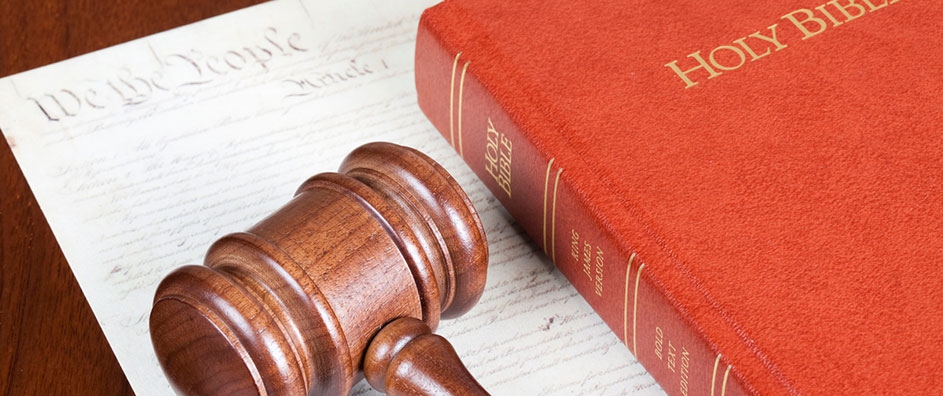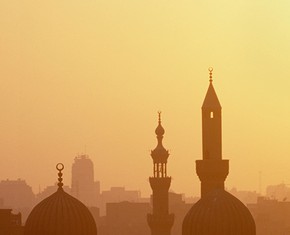The views expressed in our content reflect individual perspectives and do not represent the authoritative views of the Baha'i Faith.
All religions teach that we must do good, that we must be generous, sincere, truthful, law-abiding, and faithful; all this is reasonable, and logically the only way in which humanity can progress. – Abdu’l-Baha, Paris Talks, p. 142.
Every great global Faith brings a new set of laws to humanity.
In Hinduism, the law of the Dharma prescribes the right way of living, and sets forth a legal and ethical code that some consider the oldest in the world. In Judaism, Moses brought the Ten Commandments and established Mosaic Law, also known as the Old Covenant. In Christianity, Jesus gave new laws to his disciples in the Gospels, often referred to today as the New Covenant or the Law of Christ. In Buddhism, the dharmachakra (or in Pali, the dharmacakka) represents the Wheel of the Law, containing the Noble Eightfold Path of the Buddha, set in motion when the Buddha delivered his first sermon. In Islam, sharia law contains the laws found in the Qur’an and in the sunnah, the oral traditions that derive from the life of the prophet Muhammad.
Every great civilization is preceded by a great Faith. The Baha’i teachings say that all lasting civilizations have a moral basis that initially originates from religion:
All of these moral laws and the civil and governmental legal systems that eventually grew up around them came originally from the moral teachings of religion…
For, unless the moral character of a nation is educated, as well as its brain and its talents, civilization has no sure basis.
As religion inculcates morality, it is therefore the truest philosophy, and on it is built the only lasting civilization. – Abdu’l-Baha, Paris Talks, p. 32.
Baha’is see true law and true religion, then, as a symbiotic relationship:
…in the world of mankind there are two safeguards that protect man from wrongdoing. One is the law which punishes the criminal; but the law prevents only the manifest crime and not the concealed sin; whereas the ideal safeguard, namely, the religion of God, prevents both the manifest and the concealed crime, trains man, educates morals, compels the adoption of virtues and is the all-inclusive power which guarantees the felicity of the world of mankind. But by religion is meant that which is ascertained by investigation and not that which is based on mere imitation, the foundations of Divine Religions and not human imitations. – Abdu’l-Baha, Selections from the Writings of Abdu’l-Baha, pp. 302-303.
Human civilizations first developed their legal codes and systems from the moral laws found in their religions. Western legal systems, for example, largely evolved from Judeo-Christian teachings of fairness, love for others and the Golden Rule. The laws those religious teachings proclaimed then allowed human societies to craft legal codes designed to maintain order, protect the innocent and create a system of agreed-upon rules for the maintenance of civilization.
The Baha’i Faith also brings a new code of laws to humanity.
In summary, the Baha’i laws outlaw holy war, murder and manslaughter. They forbid religious hatred, violence and the burning of books. They abolish the concept of ritual impurity by regarding all things and all people as pure, and viewing nothing as untouchable. They establish and uphold freedom of conscience and belief. They forthrightly declare the equality of women and men. They assert the fundamental agreement of science and religion. They forbid slavery. They have no dress code, dietary restrictions or dogma. They promote world peace, the unity of nations and the absolute equality of all races. They protect freedom of religion, and ask us all to befriend the followers of every religion. The Baha’i laws call for equal justice and equal human rights for every human being everywhere:
Justice is not limited, it is a universal quality. Its operation must be carried out in all classes, from the highest to the lowest. Justice must be sacred, and the rights of all the people must be considered. Desire for others only that which you desire for yourselves. Then shall we rejoice in the Sun of Justice, which shines from the Horizon of God. – Abdu’l-Baha, Paris Talks, pp. 159-160.
But if you’re not a Baha’i, why should you care about Baha’i law? After all, Baha’is don’t control any countries, implement binding legal systems or make any civil laws that affect others. Baha’is support the laws of Baha’u’llah through spiritual and moral suasion, not through force or coercion. Only those who accept the teachings of Baha’u’llah are subject to Baha’i law, so what difference does Baha’i law make to those who aren’t Baha’is?
Here’s the answer to that question: like the global Faiths of the past, whose moral teachings influenced entire societies and then gradually found their way into the legal codes of those societies; Baha’is believe that Baha’i law will eventually have a significant influence on the civil laws that govern all humanity.
Even more importantly, Baha’is regard Baha’u’llah as the revealer of the will of God for a new age, who has established a renewed divine Covenant with humanity. Baha’u’llah’s mission—to establish the kingdom of God on Earth by unifying humankind in one global family—means the Baha’i laws will eventually usher in a new worldwide system of moral and legal codes. The Baha’i laws abrogate the laws of former religious dispensations and replace them with a new world order:
The world’s equilibrium hath been upset through the vibrating influence of this most great, this new World Order. Mankind’s ordered life hath been revolutionized through the agency of this unique, this wondrous System—the like of which mortal eyes have never witnessed.
Immerse yourselves in the ocean of My words, that ye may unravel its secrets, and discover all the pearls of wisdom that lie hid in its depths. Take heed that ye do not vacillate in your determination to embrace the truth of this Cause—a Cause through which the potentialities of the might of God have been revealed, and His sovereignty established. With faces beaming with joy, hasten ye unto Him. This is the changeless Faith of God, eternal in the past, eternal in the future. Let him that seeketh, attain it; and as to him that hath refused to seek it—verily, God is Self-Sufficient, above any need of His creatures.
Say: This is the infallible Balance which the Hand of God is holding, in which all who are in the heavens and all who are on the earth are weighed, and their fate determined, if ye be of them that believe and recognize this truth. – Baha’u’llah, Gleanings from the Writings of Baha’u’llah, pp. 136-137.
















Comments
Sign in or create an account
Continue with Googleor